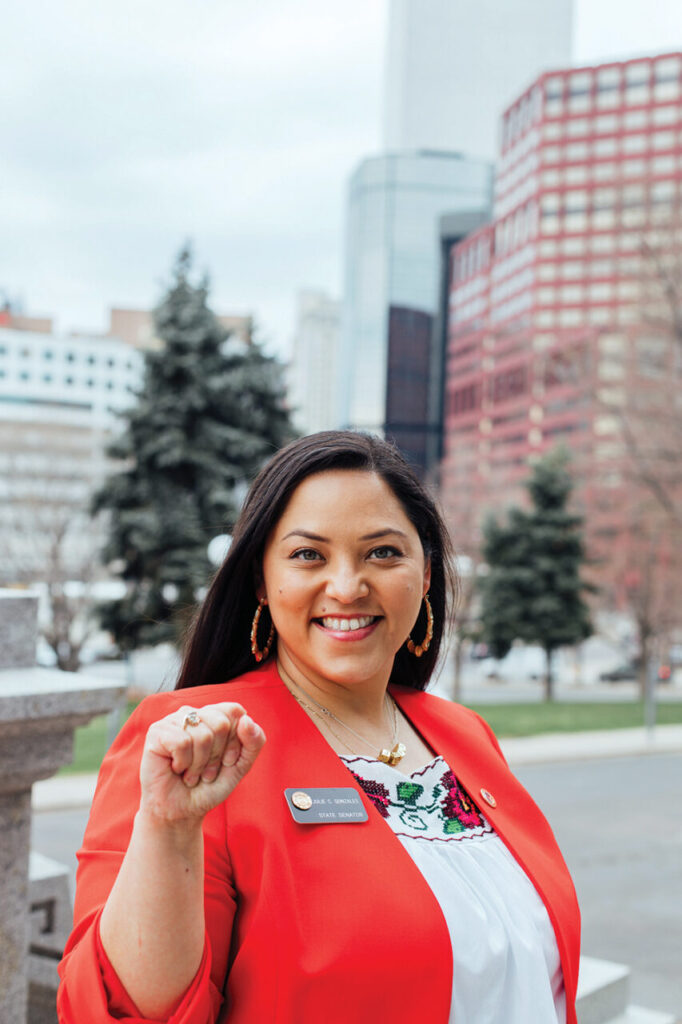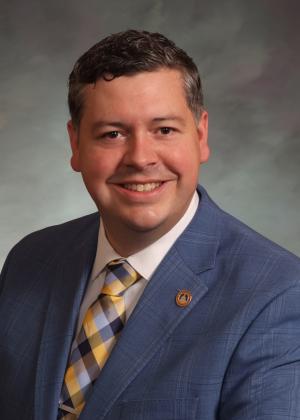North Denver’s Lawmakers Reflect on Progress, Frustrations
By Cassis Tingley
The Colorado Legislature adjourned May 8, wrapping up a 120-day session that saw gains in for-cause eviction, restrictions on the use of force by police and funding wins for DPS. However, it was also marred by conflict between and within parties, and ugly social media exchanges.
The G.E.S. Gazette sat down with three of North Denver’s elected representatives for their thoughts.

First elected in 2018, Democratic Party Whip Sen. Julie Gonzales, D-34, will serve through 2026. This session, Gonzales sponsored several bills that passed out of the Senate and went on to be signed into law, including increased funding to support newly arrived migrant students, for-cause eviction to bar landlords from evicting tenants who pay rent, studies of recidivism and the criminal justice system, and increased oversight on the use of prone restraint by law enforcement.
“We were able to utilize $24 million in order to support newly arrived migrant students,” she said. “It meant the world here on the north side of Denver.”
Gonzales co-sponsored an assault weapons ban, HB24-1292, alongside House District 4 Rep. Tim Hernández. The bill, which would have banned the sale and manufacturing of assault weapons in Colorado, was the strictest gun control legislation to pass the House in Colorado state history. Gonzales later tabled it due to lack of support in the senate, where Sen. Tom Sullivan, a Democrat known for gun control advocacy after his son was killed in the 2012 Aurora theater shooting, promised to kill the measure in committee.
Gonzales pointed to “fear and a lot of unanswered questions” coming from her more moderate colleagues. She said that she wanted to allow time over the summer and fall for further conversations, and added, “But don’t think for a second that we’re giving up.”
“I heard so clearly from my constituents,” Gonzales said. “They are sick and tired of the gun violence in our neighborhoods, in our state and across our country. And quite frankly, Congress is broken. Congress can’t agree on what day of the week it is. So it becomes incumbent upon us, as a state, to act.”
The senator noted that “vitriol” she faced on social media near the beginning of the session pushed her to increase face-to-face engagement through cafecitos and town hall meetings.
“We don’t always agree,” she said, “and that’s OK, but it’s [about] how we listen to each other and then find the path forward.”
To Hernández, who filled an HD4 vacancy and is seeking re-election this year, the session was a productive introduction to policymaking.
“I was trying to learn a lot about processes and understanding how we can advocate for progressive causes in ways that effectuate change,” Hernández said. “We can create an environment in Colorado that doesn’t just respond to issues but does the important work of addressing them before they arise.”
Representing west and northwest Denver, Hernández took on worker protections and the school budget formula, and, alongside Gonzales, for-cause eviction, the assault weapons ban and the creation of a Chicano license plate.
Hernández was especially proud of the new school funding model, which now decides district funding based on factors like locale, “at-risk” pupil enrollment, cost of living and English-language-learner enrollment.
While the budget formula bill was successful, Hernández found frustration with HB24-1260, which would have made it illegal for employers to retaliate against workers who refuse to participate in their employer’s expression of political or religious speech.
The measure passed both the House and Senate before being vetoed by Gov. Jared Polis. Hernández said he thought Gov. Polis was afraid of giving workers too much protection. In his veto statement, Polis said he had urged lawmakers to devise “a more manageable and neutral definition of coercive captive audience meetings.”
Hernández faced similar frustrations with the tabled assault weapons ban.
“The assault weapons ban was a huge, resounding piece of feedback that folks were asking us to take on,” he said. “While Tom Sullivan might believe that it’s not the correct solution, as elected representatives, our responsibility is to the voters.”
Despite setbacks in gun control and workers’ rights, Hernández pointed to collaboration with policymakers from Montbello, Jefferson County and the Western Slope, and gains in other areas as victories.
“I saw a lot of folks fighting for our communities in ways that were productive, in ways that were collaborative and in ways that were very intentional,” Hernández said.

Rep. Alex Valdez, who has represented House District 5 since 2019 and is up for re-election this year, saw the session differently.
“It was a bit of a disappointment,” said Valdez, who reflected that the bills he sponsored this year did not have as much success as he’s had in past sessions. “The ability to get really big, complex legislation done has decreased drastically.”
Valdez, who said he is focusing on environmental legislation, proposed bills promoting rezoning to increase “smart” density in urban areas, the recycling of single-use vapes and securing tax credits for the quantum industry, which was signed by Gov. Polis on May 28.
The representative also sponsored HB24-1173, which, signed by Gov. Polis on May 21, will streamline the approval process for electric vehicle charging stations. While disappointed that the final bill was an “opt-in” mandate, Valdez saw this as a win for his constituents in HD5.
“If we’re really promoting electric vehicles, we need to be promoting the electric charging infrastructure, especially in areas like Northwest Denver, where most people don’t pull into the garage to charge their car every night,” he said.
While Valdez felt frustrated at what he saw as a “disorganized” Democratic party, he said he would continue to push for sustainable environmental policy and green innovations in RTD.
“Good legislation doesn’t always happen the first time you try it,” he said. “You really have to kind of find a pathway by exploring, being bold with the idea.”

Be the first to comment